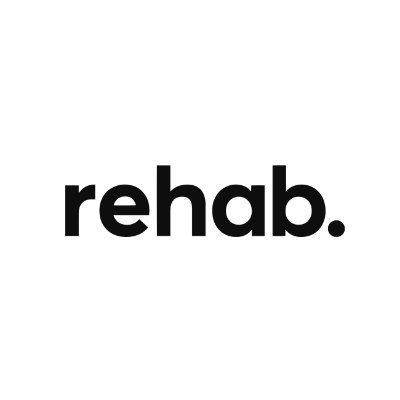
The Fear of Change is Changing
Innovation, by its very nature, involves change and disruption. This is undisputed, but many businesses can, naturally, have some reservations about disrupting themselves too much. After all, change can often seem like a scary thing. But businesses have now been forced to change by something well beyond their control. The aptitude to risk has changed and ‘pandemic’ will be referenced in the PESTLE analysis of every university student's dissertation for years to come.
At Rehab, we’ve witnessed this attitude shift first-hand and several of our clients are now looking at previous ‘no go’ areas to ensure that their businesses are future-proofed and able to meet new behavioural change. This includes direct-to-consumer strategies and external brand partnerships to offer something bigger than they are individually allowed to offer. This seems obvious, but this mindset is not natural to some businesses. Especially those with established retail supply chains and fulfilment processes that have taken decades to develop.
They’re experimenting with new models and a renewed understanding that certain technology solutions are no longer ‘nice to have’. To quote Scott Galloway: “Things won’t change as much as they will accelerate. While other crises reshaped the future, COVID-19 is just making the future happen faster.”
Specifically, we’re seeing renewed focus on cross-department collaboration with companies, creating steering groups and bringing in trusted advisors from lots of different departments. Finance teams are working with digital teams to develop new revenue models, sales teams are informing digital strategy, and so on. A fake product, a series of banner ads and a considered social media test generated more insight into buyer behaviour for one client than they had seen in months. It took us three days. Marketing? No. They were product development.
Innovation is happening like never before and it’s all being driven by changing consumer behaviour and the need to understand who the consumer actually is. And quickly.
And data is front and centre. Ecommerce orders have sky-rocketed over the last 12 months. Sales are one thing, but the data and insight this generates is on a whole other level and this is really where the major change is happening. A lot of businesses have not been able to make the most of this and have failed to embrace behavioural consumer trends like D2C or subscriptions. Peloton, Heights, HelloFresh - these are incredible businesses that deserve every success, but if I was a VP working at one of the major global conglomerates I’d be really pissed off. These are exactly the sort of companies that should have been incubated by a multi-billion turnover organisation. But they weren’t. Large companies don’t, can’t or won’t think like that. Change means effort and upsetting that status quo.
But they don’t really have a choice now. It’s make or break and the businesses that have properly invested in technology, data science teams, and sophisticated R&D and innovation programmes will reap the rewards.
Based on the brands we’re working with, there is, in particular, a real focus on understanding how the retail and online journeys can help feed into one another to generate behavioural insight. Nike is a standout example here. Their app ecosystem - SNKRs, Nike App etc. - provide insight, trends, and touchpoints to their fans. This insight is then also used to tailor the in-store experiences, providing exclusive promos, rewards, or experiences.
LuLu Lemon is another brand that understands the power of the digital ecosystem. The app obviously provides commerce functionality, but also brand stories and opportunities to connect their fans and user base to each other via yoga events etc. And with the recent acquisition of Mirror, it’s clear to see their ambition is to have all aspects of the fitness market covered, and with it - a subscription based business model that provides insight and information back into the LuLuLemon marketing and product teams. They now have the power to use this insight to inform highly personalised experiences, offers and loyalty programmes that will be so targeted and so incredibly relevant that consumers will simply refuse to consider other brands.
Omnichannel has been a buzz word for years, but the last twelve months has really galvanized senior leadership teams to make this happen. They’re now properly integrating teams and implementing the ‘nice-to-haves’ that, lets face it, were ‘must-haves-put-off’ because they would upset the status quo and cause additional stress, pressure and work. COVID-19 has forced a change that has been hovering on the periphery of business and marketing strategy for close to decade.
Going back to how department interaction is changing, it’s important to emphasise that large corporate structures, policies and politics can stifle innovation (but not always), and incredible ideas might get overlooked or ignored because they haven't come from the ‘right’ department or stakeholder. Building on this, we’ve found an increasing number of companies are needing to operate and innovate outside of the main corporate structure with entirely separate skunk-works type teams. They have the funding and support of a major business, but are able to operate with more autonomy and agility. Testing and development is faster and insight can be generated quickly before being brought into the fold when proven, leading to faster change at less risk. If you feel restricted by the speed and agility of your organization then this may be the solution for you.
I’d argue the days of the 2 or 3 months research programmes are now gone. The last year has proven that you can test a single proposition or product within days (hours, in some cases) to gather just enough insight and feedback, in near real time, to make an informed decision. The fear of failure has been wiped out by the need to survive and it's incredibly exciting to witness.
We constantly reference the McSpaghetti test at Rehab. Whether it’s myth or reality, it’s a proven concept that we know various businesses use. Put a fake product online (or in-restaurant in the case of McDonalds) and if enough people click to purchase or enquire about it, you accelerate it’s development. Simple. Ever seen an unusual dessert on the Domino’s website? Sold out? Know anyone that’s tried it? Thought so. This painted door test is a well established and proven way to test consumer demand and you can do this on your products without blowing the bank. Smart, highly targeted contextual paid social advertising leading to a single page website can deliver more insight than a month's worth of traditional research.
Traditional marketing teams are now embracing new thinking like this. It is how startups operate. It’s how your new competitors are operating and it’s how your brand should be operating, if you’re honest with yourself. But are you willing to change?


